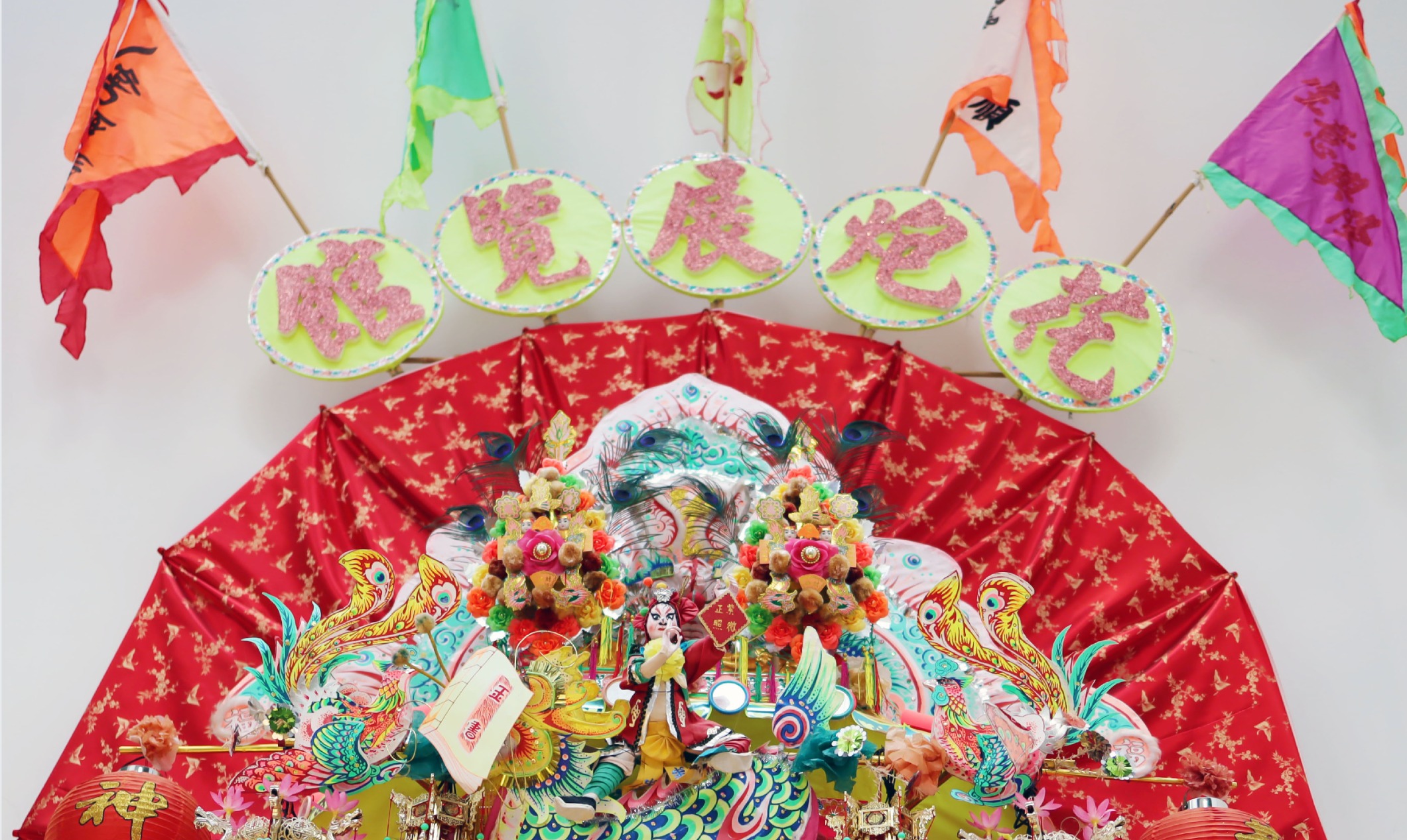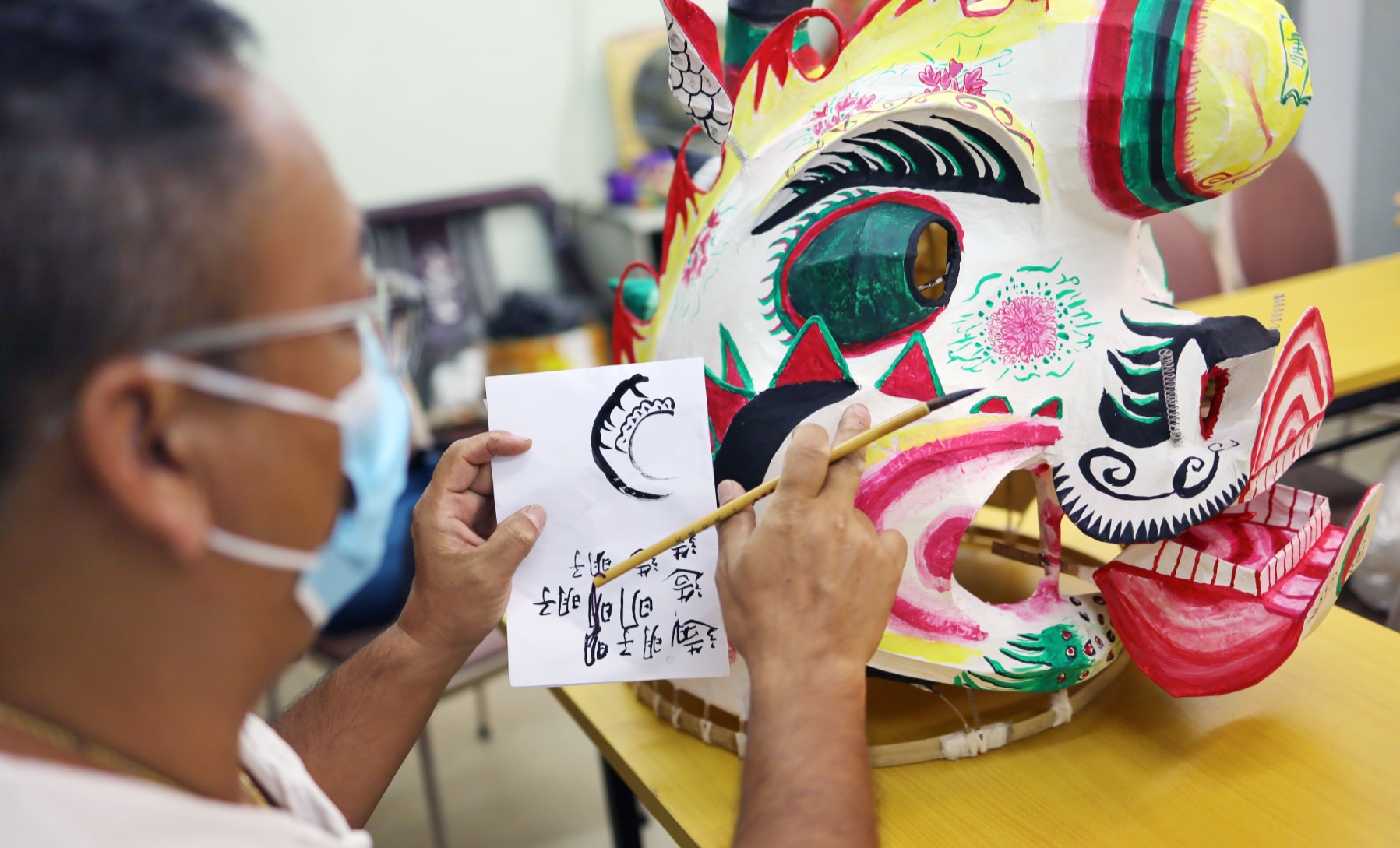An artisan painted on a paper craft item.
In recent years, heritage conservation has aroused more and more public interest. Both tangible and intangible heritage are so precious that we should particularly safeguard and pass them on to the next generation. In this issue, Chung Chi fresh graduates Kam Tsz Yeung, Lam Wing Sum, Wong Tik Sun, and Chung Chi student Ng Tsz Yi Apple decided to study the conservation feasibility of paper crafting techniques, which is a kind of intangible heritage, by using a mobile app as the theme of their Capstone Project of the General Education programme, “GECC3130 Exploration and Discovery”. How did they put the advanced technology to good use to promote historical paper crafting techniques?
Q: Among a broad variety of intangible heritage, why did you choose paper crafting techniques as your research topic?
Paper crafting techniques is a historical Chinese traditional crafting skill, which does not only play an important role in a plethora of festivals and traditional customs in Hong Kong, but is also closely associated with our daily life. From celebratory events such as the opening of a new shop to solemn ceremonies like funerals, we can always observe paper craft products. Though not many people engage in this field today, the sophisticated handcrafting techniques and cultural connotations highlight its preservation values. It is worth passing down from generation to generation. We explored the possibility of using a mobile app to promote paper crafting techniques, and hope to leverage advanced technology to produce a digital travel guide for promoting the rarely known cultural heritage. Users can then enjoy an in-depth tour and pass on such a traditional and precious intangible heritage to the next generation.


(From left to right, top to bottom) Mr. Kam Tsz Yeung, Mr. Lam Wing Sum, Mr. Wong Tik Sun, and Ms. Ng Tsz Yi Apple have joined efforts to safeguard and pass on the intangible heritage to the next generation.
Q: What are the major functions of the digital travel guide?
The digital travel guide encompasses the culture and historical background, videos introducing online resources, and maps showing the tourist attractions and festival events related to paper crafting works, such as the dates and celebratory locations of Chinese New Year, Yue Lan Festival, and the Jiao Festival, through which tourists are encouraged to appreciate paper crafting techniques from multiple perspectives. In addition, even during non-festival periods, the celebratory occasions of festival events can be portrayed by using augmented reality (AR). Tourists can get to know and appreciate such an invaluable intangible heritage through AR. We also provided an audio guide for the tourists in need.


The research team of “Paper Crafting Techniques” paid a visit to Fa Pau Exhibition Hall to appreciate Tin Hau fa pau (flowery rockets), and had a better understanding of the design, features and related customs of fa pau in general.
Q: What reward did you reap upon completing this research project?
We have identified three facets of the conservation value of Hong Kong paper crafting techniques, including heritage, art expression, and connection between culture and society. On the other hand, we have found out three major difficulties of preserving paper crafting techniques in Hong Kong by interviewing some artisans in this field. First, the huge cost involved deters paper crafting techniques from flourishing as the retail street rent is high. Most paper craft stores would prefer purchasing and selling ready-made products to crafting paper products themselves for the sake of cost saving. Second, paper craft products have become more homogenous. The mass production of machine-made paper products cannot fulfil the needs of individual customers. Third, apart from changes in social values, celebrations of traditional Chinese festivals become less popular, the demand for festive paper products has been decreasing, and the public acceptance of grand scale paper craft works has been declining. If the mobile app that we have developed can promote paper crafting techniques effectively, we hope to apply this to other types of intangible heritage so as to arouse public interest in intangible heritage. People will end up re-examining and recognising its value.







